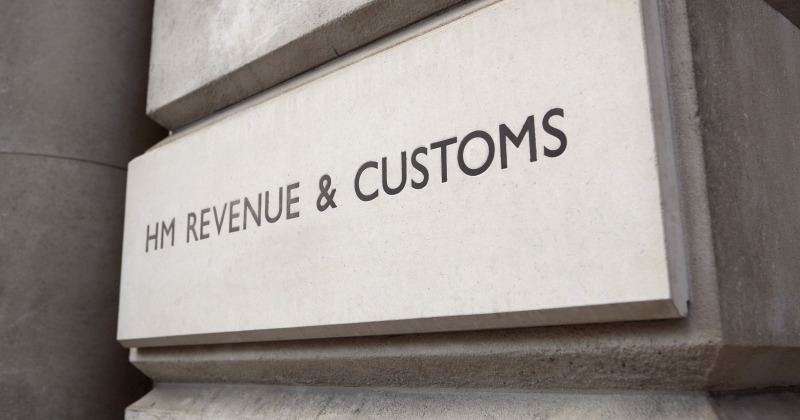Four colleges have won tax rebates worth more than £2.8 million ahead of a Court of Appeal battle over VAT rules that will affect the entire FE sector.
The appeal, scheduled for June next year, is the latest round in a dispute between the Colchester Institute and HMRC over whether colleges can claim VAT discounts on the cost of large building projects started before 2010.
If the Colchester Institute wins, colleges could reclaim VAT on payments for projects used for teaching a mix of fully-funded and fee-paying students.
However, most FE colleges may also face significant increases to their tax bills after losing charitable reliefs, including a zero-VAT rate for new-build construction projects and 5 per cent tax rates on fuel and power costs. It could result in FE colleges paying millions more in tax, experts believe.
VAT advisers told FE Week an estimated 20 to 30 colleges could benefit from a victory by Colchester Institute as they have tax claims on similar building projects.
But if HMRC wins, it is understood colleges will retain the right to VAT reliefs and those following Colchester Institute’s example could have to repay any VAT adjustments they have already claimed.
The new rulings
News of the Court of Appeal date was confirmed last month in a series of rulings from a judge in the First-Tier Tribunal Tax Chamber, which deals with the first stage of appeals against HMRC decisions on VAT bills.
The four colleges are Colchester Institute, Portsmouth College, Cornwall College and Derby College Group. Derby won a £1.9 million VAT adjustment based on spending between 2016 and 2018.
In the rulings, the judge said he was “bound” to rule in favour of the colleges, in line with a more senior tax court’s ruling in the dispute between Colchester Institute and HMRC that was issued in 2020.
Stuart Savage, tax director at RSM UK, said: “These cases, on their own, aren’t particularly important other than to those parties involved; but the issue more broadly is massively important to the sector.”
He added that, given that HMRC appears committed to pursuing the case to the Supreme Court, the Colchester Institute case should “resolve” the uncertainty around the VAT rules in this area, but warned that this “might not be for some years to come”.
The dispute
The Colchester Institute made a series of claims for VAT it paid on a large building project started in 2008 using a rule known as the ‘Lennartz mechanism’.
In 2020, the Upper Tax Tribunal, whose decisions set a precedent for other cases, ruled in Colchester’s favour.
The decision changed the way grant-funded education is treated for tax purposes, switching it from a “non-business activity” to a “business activity”, which excluded it from VAT reliefs.
However, soon after the 2020 ruling, HMRC said it acknowledged the court decision but would not impose the new rules on colleges while it mounted a new “test” appeal. This is the appeal scheduled next year.
In the meantime, HMRC left FE colleges with the choice of applying tax rules in the same way as Colchester Institute, which Portsmouth College, Cornwall College and Derby College Group did, or continue to follow tax rules as they stood before 2020.
Savage said the tax authority was “trying to do the right thing” by giving colleges the choice, as losing VAT reliefs would be a “real issue” for most colleges.
How much is at stake?
James Hurst, VAT adviser at Johnston Carmichael, said the cost for colleges could be worth “many, many millions”.
He told FE Week: “I’d say the vast majority of our FE colleges don’t have Lennartz claims and they are probably more concerned that on an ongoing basis they might lose their VAT reliefs, especially around fuel and power.
“If the Colchester decision is upheld it’s a massive additional cost for them. We are seeing HMRC start to pay more attention to how FE colleges are applying the Colchester decision or not right now, and making sure they’re consistent in that point.
“And for me, the sooner it can get to March 2026, and get to conclusion, the better.
“Rather than ‘pick a lane’, let’s get a long-term determination on where that is, and that would make the point simpler for everyone.”
An HMRC spokesperson said: “We are challenging the Upper Tribunal’s decision in the Colchester Institute case in an upcoming hearing in the Court of Appeal, which is relevant to the Derby College Group appeal and others.
“It remains our position that the funding given to the colleges is not payment for the free education they provide.”
The spokesperson added that HMRC will await the outcome of the appeal process before reviewing the tax treatment of FE colleges.
An ‘unusual’ case
HMRC’s decision to tell colleges they can “ignore” the binding 2020 ruling has led to a “long period of uncertainty”, said Socrates Socratous, VAT adviser at Buzzacott.
While the agency has given colleges the “flexibility” to decide which tax route to follow, the final court decision could lead to “subsequent adjustments” which could be backdated several years.
Socratous added that the HMRC withdrew permission for colleges to use the Lennartz mechanism in January 2010, meaning Colchester Institute and its adviser VAT Angles have secured a “one-off win”.
He said: “If they are successful, yes they’ve achieved the short-term win of getting repayments, but in the long term they’ve removed the ability of colleges to have buildings zero-rated for VAT. Is that a good or bad thing for the sector, if they can’t claim other VAT expenses?”
















Your thoughts